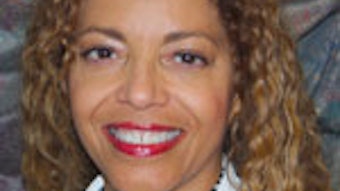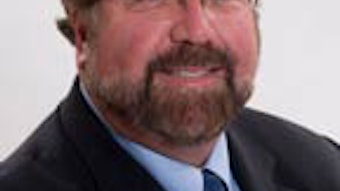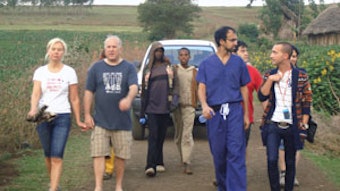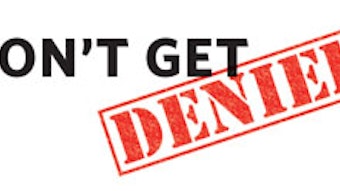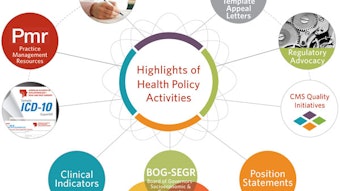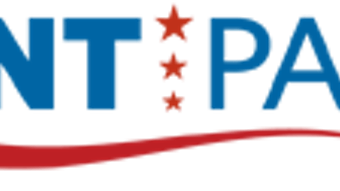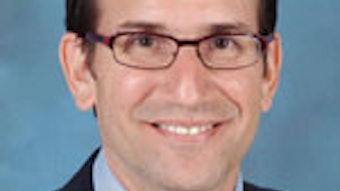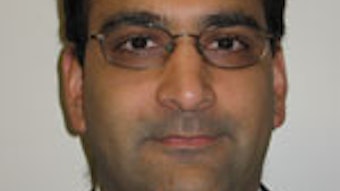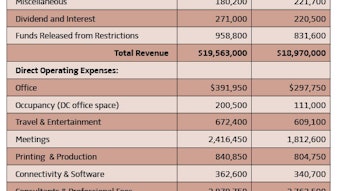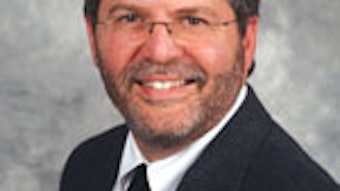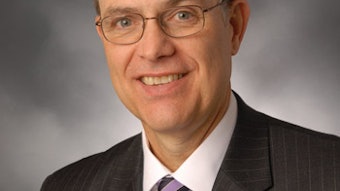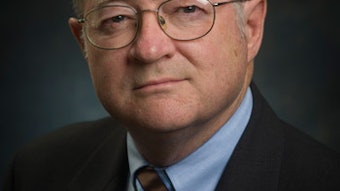What Every Otolaryngologist Needs to Know about the Open Payments Program (Sunshine Act)
Robert M. Portman, JD, MPP* The Physician Payments Sunshine Act (PPSA or Sunshine Act), now being implemented as the Open Payments program, is upon us. The primary purpose of the program is to shed light on the financial ties between the healthcare products industry and physicians. Most physicians know this law is going to require public reporting of their financial relationships with drug and device companies, but many doctors have less than a full picture of what the law requires and how it will affect them. This article summarizes the key provisions of the final PPSA rules that were issued in 2013 by the Centers for Medicare and Medicaid Services (CMS) and provides answers to frequently asked questions about the Open Payments program. While the final rule covers the reporting obligations of both manufacturers and GPOs, this article will focus only on the obligations of manufacturers. Much more information about the program can be found at the Open Payments website at go.cms.gov/openpayments. Summary of Final Rule The PPSA rules impose two types of reporting requirements on “applicable manufacturers,” defined as those companies that manufacture a Medicare, Medicaid, or Children’s Health Insurance Program (CHIP)-covered drug, device, biological, or medical supply and whose products are sold or distributed in the United States. First, they require any applicable manufacturer to report transfers of value to a physician or teaching hospital, which the final rule refers to as “covered recipients.” Second, applicable manufacturers are required to report separately any physician ownership and investment interests and payments of value to physician owners, investors, and immediate family members, including spouses, children, parents, siblings, and other close relatives (but note that the names of family members do not need to be reported, just the physician’s name). This includes physicians with an ownership interest or stock with an applicable manufacturer, regardless of the amount, but only where the manufacturer is aware of such ownership interest. Failure to adhere to these reporting requirements may result in civil monetary penalties for manufacturers. The final rule requires manufacturers to report a transfer of anything of value to a covered recipient, regardless whether it was requested, to a physician or teaching hospital. “Anything of value” includes: Cash or cash equivalents Space rental or facility fees In-kind items or services Stocks, stock options, or any other ownership interests, dividends, profits, or other returns on investments The rule outlines a number of exclusions from the reporting requirements, including but not limited to: Transfers of value of less than $10 unless the aggregate amount over a year exceeds $100, with an exception to the aggregation requirement for pens, notepads, and other de minimis items provided at conferences or other large scale events; Product samples intended for patients; Educational materials that directly benefit patients; Discounts or rebates; Payments to speakers and tuition discounts for attendees at certain accredited CME events; and In-kind items for charity care Applicable manufacturers must report the name, date, NPI, state license number, specialty, and address of the entity or individual receiving the payment to CMS. The report must specify the amount of the payment, the nature of the payment (such as consulting fee, food, entertainment, travel, education, or research), and the form of payment (such as cash, stock, stock option, or in-kind items or services). Once the data is submitted to CMS, the agency aggregates and sorts it by individual covered recipients and provides them with 45 days to review and dispute manufacturer reports and another 15 days for manufacturers to submit corrections. CMS will publish the reports in a publicly searchable database on the Open Payments website with the individual physicians’ names and information and whether the report is disputed. Frequently Asked Questions about the Open Payments Program Scenario EXAMPLE. What kinds of final relationships with manufacturers are reportable? The Sunshine Act covers virtually any kind of direct or in-kind remuneration from a manufacturer to a physician or teaching hospital, including: Consulting fees Compensation (services other than consulting, includes serving as faculty or as speaker at an event other than a continuing education program) Honoraria Gifts Entertainment Food and beverage Travel and lodging Education Text books and journal reprints Research Charitable contributions Royalty or license Current or prospective ownership or investment interest Compensation for serving as faculty/speaker for unaccredited and non-certified continuing education program Direct compensation for serving as faculty/speaker for accredited and certified continuing education program Grants Space rental or facility fees (teaching hospital only) Stock or stock options Scenario EXAMPLE. If a manufacturer pays for lunch at our group practice, but I don’t attend or don’t eat the food, will I still be reported? No, only those who attend and partake of the meal will be reported—assuming that the meal is more than $10 in value. The value of the meal must be calculated on a per-person basis, including all attendees, not just physicians. Scenario EXAMPLE. I’ve heard that if I eat a meal at an industry-sponsored AAO-HNS/F meeting or receive an AAO-HNS/F research grant funded by a drug or device company that my name might be reported to CMS, is that true? Yes, the Sunshine Act requires manufacturers to report indirect transfers of value to physicians through third parties, like medical societies, when the manufacturer directs, instructs, or otherwise causes the medical society or other organization to provide the payment to the physician and the manufacturer knows or easily could ascertain the identity of the physician recipient(s). If a manufacturer sponsors a dinner at the AAO-HNS/F Annual Meeting, the per-person value of that dinner would have to be reported for all of the physician attendees. Likewise, if a manufacturer funds a research grant that is administered by AAO-HNS/F to be awarded to an AAO-HNS physician member, the value of the grant would be reportable for the physician awardee. By contrast, if the manufacturer gives AAO-HNS/F an unrestricted grant for the Annual Meeting, (i.e., without specifying how the money should be used), and AAO-HNS/F decides to use some or all of those funds to subsidize a dinner at the Annual Meeting, that would not be reportable because the manufacturer did not cause the funds to be used to transfer something of value to physicians. [Cautionary note: some manufacturers are taking a very conservative interpretation of the Open Payments rules and are saying they will report even unrestricted grants if they learn that the money was eventually used to make indirect transfers of value to physicians and they can easily identify the physician beneficiaries; even though they did not cause the funds to be transferred to a physician.] Similarly, an industry-funded lunch buffet in the Annual Meeting exhibit hall would not be reportable because it would likely constitute a “large-scale event” for which the identity of the physician beneficiaries could not be easily ascertained. Payments to physician faculty and tuition discounts for attendees of manufacturer-funded CME are not reportable if the event is accredited by, among others, the Accreditation Council for Continuing Medical Education, the American Medical Association, the American Osteopathic Association, or the AmericanAcademy of Family Physicians. Under this exception, the manufacturer also may not have any role in picking speakers or content and cannot pay the faculty or attendees directly. This exception would not cover any meals or other kinds of transfers of value provided to the attendees of accredited CME events. Scenario EXAMPLE. Is AAO-HNS/F required to provide my name and other information to industry sponsors if I receive an indirect transfer of value through the Academy or Foundation? Technically, medical societies like AAO-HNS/F are not covered by the Sunshine Act and therefore do not need to provide information to industry about indirect transfers of value to their physician members. But, future industry funding is likely to be conditioned on such cooperation; and if AAO-HNS/F does not provide the information, manufacturers will report based on their best guess of the identity of the physician recipients and the value of the benefit. This could lead to wildly inaccurate reporting by industry and cause even bigger problems for AAO-HNS members. Scenario EXAMPLE. Can I avoid being reported by redirecting payments to charities or friends and family? No, if a physician redirects an industry payment to a family member, friend, or favorite charity, the law still requires the manufacturer to report the payment as if it has been made to the physician directly. However, the third party does not need to be reported. Scenario EXAMPLE. Will I have a chance to review and dispute reports about me? Yes, as noted above, the Open Payments program gives physicians a 45-day window to review and dispute reports about their financial relationships with, or ownership interests in, manufacturer companies. During this period of time, the physician can contact the manufacturer and try to persuade the company to change or remove the report. The manufacturer then has 15 days to correct the report. But, if the manufacturer refuses to do so, CMS will only mark the report as disputed; it will not remove it or otherwise arbitrate the dispute. Scenario EXAMPLE. When are these reporting requirements effective? Manufacturers were required to start collecting data as of August 1, 2013 and needed to submit data through December 31, 2013 to CMS by March 31, 2014. The Open Payments public database goes live on September 30, 2014. In future years, the website will post reports by June 30 for the previous year’s data. Scenario EXAMPLE. What can I do to protect myself from inaccurate reports or explain my industry relationships to patients? Physicians and their practice groups should track and retain their own records of items of value received from manufacturers to ensure they are prepared to evaluate and challenge the accuracy of reports that include them. (Note that the Open Payments website is offering a mobile app to assist physicians in tracking their industry relationships.) With only a 60-day period for dispute resolution and no independent review, physicians need to respond quickly to improve the chances of resolving discrepancies. Failure to resolve a dispute will lead to publication of a manufacturer’s report “as is,” albeit in some cases with a note that the report is disputed. But physicians will have no opportunity to publish an explanation of their position. CMS recommends that all covered recipients register on the agency’s website. Registration supposedly will ensure that CMS will notify physicians in a timely manner after the manufacturer submits a report so that the physician will have an opportunity to check to see if his or her name has been included and, if necessary, dispute the report. CMS will not notify physicians when their particular name has been reported. It will be up to each physician to search the database for their name or NPI number. In this regard, it will be critical that CMS and manufacturers have the physician’s current name and NPI number to avoid inaccurate reports. Physicians would also be well advised to develop talking points to use in responding to questions from patients, colleagues, and, in some cases, the media, about their industry relationships. They may also want to preempt such questions by putting information about their relationships with industry on their practice website or in other patient communications. Robert M. Portman, JD, MPP, is an association and healthcare attorney with Powers Pyles Sutter & Verville PC in Washington, DC. He also serves as legal counsel for AAO-HNS/F. This article is provided for informational purposes only and does not constitute and should not be treated as legal advice.
Robert M. Portman, JD, MPP*
The Physician Payments Sunshine Act (PPSA or Sunshine Act), now being implemented as the Open Payments program, is upon us. The primary purpose of the program is to shed light on the financial ties between the healthcare products industry and physicians. Most physicians know this law is going to require public reporting of their financial relationships with drug and device companies, but many doctors have less than a full picture of what the law requires and how it will affect them. This article summarizes the key provisions of the final PPSA rules that were issued in 2013 by the Centers for Medicare and Medicaid Services (CMS) and provides answers to frequently asked questions about the Open Payments program. While the final rule covers the reporting obligations of both manufacturers and GPOs, this article will focus only on the obligations of manufacturers. Much more information about the program can be found at the Open Payments website at go.cms.gov/openpayments.
Summary of Final Rule
The PPSA rules impose two types of reporting requirements on “applicable manufacturers,” defined as those companies that manufacture a Medicare, Medicaid, or Children’s Health Insurance Program (CHIP)-covered drug, device, biological, or medical supply and whose products are sold or distributed in the United States. First, they require any applicable manufacturer to report transfers of value to a physician or teaching hospital, which the final rule refers to as “covered recipients.” Second, applicable manufacturers are required to report separately any physician ownership and investment interests and payments of value to physician owners, investors, and immediate family members, including spouses, children, parents, siblings, and other close relatives (but note that the names of family members do not need to be reported, just the physician’s name). This includes physicians with an ownership interest or stock with an applicable manufacturer, regardless of the amount, but only where the manufacturer is aware of such ownership interest. Failure to adhere to these reporting requirements may result in civil monetary penalties for manufacturers.
The final rule requires manufacturers to report a transfer of anything of value to a covered recipient, regardless whether it was requested, to a physician or teaching hospital. “Anything of value” includes:
- Cash or cash equivalents
- Space rental or facility fees
- In-kind items or services
- Stocks, stock options, or any other ownership interests, dividends, profits, or other returns on investments
The rule outlines a number of exclusions from the reporting requirements, including but not limited to:
- Transfers of value of less than $10 unless the aggregate amount over a year exceeds $100, with an exception to the aggregation requirement for pens, notepads, and other de minimis items provided at conferences or other large scale events;
- Product samples intended for patients;
- Educational materials that directly benefit patients;
- Discounts or rebates;
- Payments to speakers and tuition discounts for attendees at certain accredited CME events; and
- In-kind items for charity care
Applicable manufacturers must report the name, date, NPI, state license number, specialty, and address of the entity or individual receiving the payment to CMS. The report must specify the amount of the payment, the nature of the payment (such as consulting fee, food, entertainment, travel, education, or research), and the form of payment (such as cash, stock, stock option, or in-kind items or services).
Once the data is submitted to CMS, the agency aggregates and sorts it by individual covered recipients and provides them with 45 days to review and dispute manufacturer reports and another 15 days for manufacturers to submit corrections. CMS will publish the reports in a publicly searchable database on the Open Payments website with the individual physicians’ names and information and whether the report is disputed.
Frequently Asked Questions about the Open Payments Program
Scenario EXAMPLE. What kinds of final relationships with manufacturers are reportable?
The Sunshine Act covers virtually any kind of direct or in-kind remuneration from a manufacturer to a physician or teaching hospital, including:
- Consulting fees
- Compensation (services other than consulting, includes serving as faculty or as speaker at an event other than a continuing education program)
- Honoraria
- Gifts
- Entertainment
- Food and beverage
- Travel and lodging
- Education
- Text books and journal reprints
- Research
- Charitable contributions
- Royalty or license
- Current or prospective ownership or investment interest
- Compensation for serving as faculty/speaker for unaccredited and non-certified continuing education program
- Direct compensation for serving as faculty/speaker for accredited and certified continuing education program
- Grants
- Space rental or facility fees (teaching hospital only)
- Stock or stock options
Scenario EXAMPLE. If a manufacturer pays for lunch at our group practice, but I don’t attend or don’t eat the food, will I still be reported?
No, only those who attend and partake of the meal will be reported—assuming that the meal is more than $10 in value. The value of the meal must be calculated on a per-person basis, including all attendees, not just physicians.
Scenario EXAMPLE. I’ve heard that if I eat a meal at an industry-sponsored AAO-HNS/F meeting or receive an AAO-HNS/F research grant funded by a drug or device company that my name might be reported to CMS, is that true?
Yes, the Sunshine Act requires manufacturers to report indirect transfers of value to physicians through third parties, like medical societies, when the manufacturer directs, instructs, or otherwise causes the medical society or other organization to provide the payment to the physician and the manufacturer knows or easily could ascertain the identity of the physician recipient(s). If a manufacturer sponsors a dinner at the AAO-HNS/F Annual Meeting, the per-person value of that dinner would have to be reported for all of the physician attendees. Likewise, if a manufacturer funds a research grant that is administered by AAO-HNS/F to be awarded to an AAO-HNS physician member, the value of the grant would be reportable for the physician awardee.
By contrast, if the manufacturer gives AAO-HNS/F an unrestricted grant for the Annual Meeting, (i.e., without specifying how the money should be used), and AAO-HNS/F decides to use some or all of those funds to subsidize a dinner at the Annual Meeting, that would not be reportable because the manufacturer did not cause the funds to be used to transfer something of value to physicians. [Cautionary note: some manufacturers are taking a very conservative interpretation of the Open Payments rules and are saying they will report even unrestricted grants if they learn that the money was eventually used to make indirect transfers of value to physicians and they can easily identify the physician beneficiaries; even though they did not cause the funds to be transferred to a physician.] Similarly, an industry-funded lunch buffet in the Annual Meeting exhibit hall would not be reportable because it would likely constitute a “large-scale event” for which the identity of the physician beneficiaries could not be easily ascertained.
Payments to physician faculty and tuition discounts for attendees of manufacturer-funded CME are not reportable if the event is accredited by, among others, the Accreditation Council for Continuing Medical Education, the American Medical Association, the American Osteopathic Association, or the AmericanAcademy of Family Physicians. Under this exception, the manufacturer also may not have any role in picking speakers or content and cannot pay the faculty or attendees directly. This exception would not cover any meals or other kinds of transfers of value provided to the attendees of accredited CME events.
Scenario EXAMPLE. Is AAO-HNS/F required to provide my name and other information to industry sponsors if I receive an indirect transfer of value through the Academy or Foundation?
Technically, medical societies like AAO-HNS/F are not covered by the Sunshine Act and therefore do not need to provide information to industry about indirect transfers of value to their physician members. But, future industry funding is likely to be conditioned on such cooperation; and if AAO-HNS/F does not provide the information, manufacturers will report based on their best guess of the identity of the physician recipients and the value of the benefit. This could lead to wildly inaccurate reporting by industry and cause even bigger problems for AAO-HNS members.
Scenario EXAMPLE. Can I avoid being reported by redirecting payments to charities or friends and family?
No, if a physician redirects an industry payment to a family member, friend, or favorite charity, the law still requires the manufacturer to report the payment as if it has been made to the physician directly. However, the third party does not need to be reported.
Scenario EXAMPLE. Will I have a chance to review and dispute reports about me?
Yes, as noted above, the Open Payments program gives physicians a 45-day window to review and dispute reports about their financial relationships with, or ownership interests in, manufacturer companies. During this period of time, the physician can contact the manufacturer and try to persuade the company to change or remove the report. The manufacturer then has 15 days to correct the report. But, if the manufacturer refuses to do so, CMS will only mark the report as disputed; it will not remove it or otherwise arbitrate the dispute.
Scenario EXAMPLE. When are these reporting requirements effective?
Manufacturers were required to start collecting data as of August 1, 2013 and needed to submit data through December 31, 2013 to CMS by March 31, 2014. The Open Payments public database goes live on September 30, 2014. In future years, the website will post reports by June 30 for the previous year’s data.
Scenario EXAMPLE. What can I do to protect myself from inaccurate reports or explain my industry relationships to patients?
Physicians and their practice groups should track and retain their own records of items of value received from manufacturers to ensure they are prepared to evaluate and challenge the accuracy of reports that include them. (Note that the Open Payments website is offering a mobile app to assist physicians in tracking their industry relationships.) With only a 60-day period for dispute resolution and no independent review, physicians need to respond quickly to improve the chances of resolving discrepancies. Failure to resolve a dispute will lead to publication of a manufacturer’s report “as is,” albeit in some cases with a note that the report is disputed. But physicians will have no opportunity to publish an explanation of their position.
CMS recommends that all covered recipients register on the agency’s website. Registration supposedly will ensure that CMS will notify physicians in a timely manner after the manufacturer submits a report so that the physician will have an opportunity to check to see if his or her name has been included and, if necessary, dispute the report. CMS will not notify physicians when their particular name has been reported. It will be up to each physician to search the database for their name or NPI number. In this regard, it will be critical that CMS and manufacturers have the physician’s current name and NPI number to avoid inaccurate reports.
Physicians would also be well advised to develop talking points to use in responding to questions from patients, colleagues, and, in some cases, the media, about their industry relationships. They may also want to preempt such questions by putting information about their relationships with industry on their practice website or in other patient communications.
Robert M. Portman, JD, MPP, is an association and healthcare attorney with Powers Pyles Sutter & Verville PC in Washington, DC. He also serves as legal counsel for AAO-HNS/F. This article is provided for informational purposes only and does not constitute and should not be treated as legal advice.
